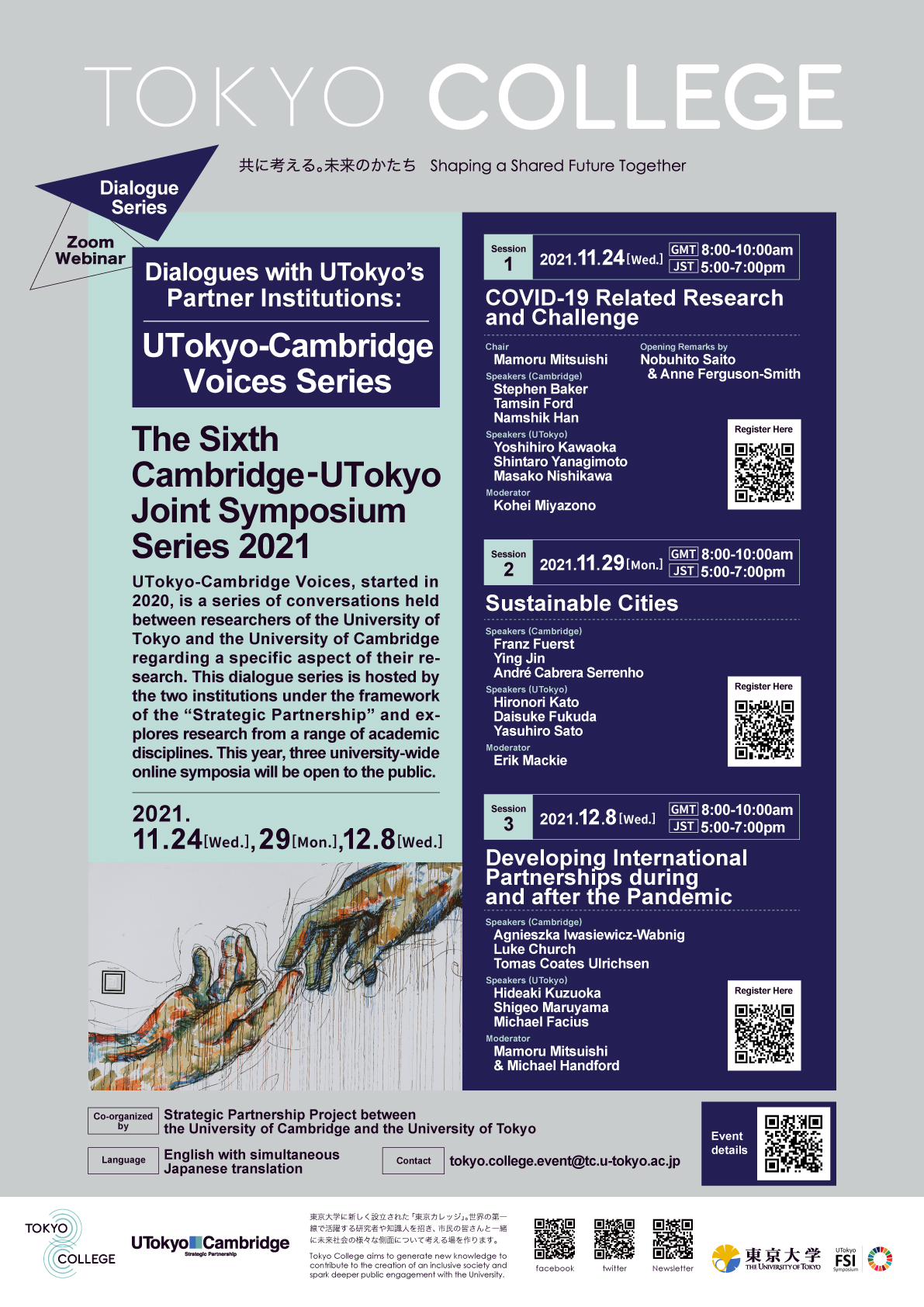Dialogues with UTokyo’s Partner Institutions: The Sixth Cambridge – UTokyo Joint Symposium Series Session Two: Sustainable Cities

| Date(s) | Monday, 29 November 2021, 5:00‐7:00 pm (JST)/ 8:00-10:00 am (GMT) |
|---|---|
| Venue |
Zoom Webinar (Register Here) |
| Registration | Pre-registration required |
| Language | English (with simultaneous Japanese translation) |
| Abstract |
UTokyo-Cambridge Voices, started in 2020, is a series of conversations held between researchers of the University of Tokyo and the University of Cambridge regarding a specific aspect of their research. This dialogue series is hosted by the two institutions under the framework of the “Strategic Partnership” and explores research from a range of academic disciplines. This year, three university-wide online symposia will be open to the public. The theme of session two is “Sustainable Cities”.
**Click here for more information.** |
| Program |
Moderator Erik Mackie& Manar Alsaif Presentations (5:00pm (JST)/ 8:00am (GMT) )
Q&A
Break
Presentations(6:00pm (JST)/ 9:00am (GMT) )
Q&A |
| Speaker Profile |
Moderator: Erik Mackie (Engagement Manager, Energy Transitions Research, University of Cambridge) Manar Alsaif(Coordinator, Strategic Partnership Office Energy Sector, University of Cambridge) Speakers: André Cabrera Serrenho(Department of Engineering, University of Cambridge) Ying Jin(Department of Architecture, University of Cambridge) Franz Fuerst(Department of Land Economy, University of Cambridge) Hironori Kato(Professor, Graduate School of Engineering, The University of Tokyo) Daisuke Fukuda (Professor, Graduate School of Engineering, The University of Tokyo) Yasuhiro Sato(Professor, Graduate School of Economy, The University of Tokyo)
|
| Organized by | Strategic Partnership Project between the University of Cambridge and the University of Tokyo |
| Contact | tokyo.college.event@tc.u-tokyo.ac.jp |
















